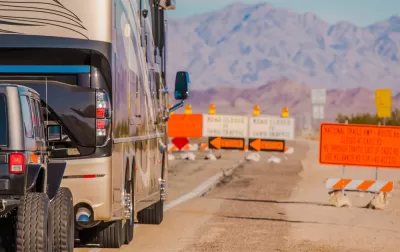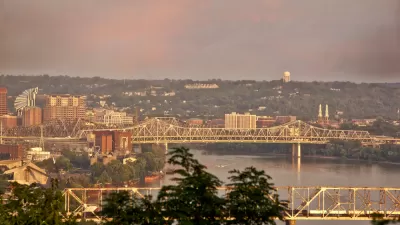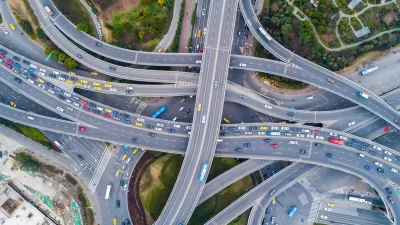Democratic legislators in Nevada are considering a constitutional amendment that would allow the state to use gas tax revenues for transportation projects other than road construction, maintenance, and repair.

According to an article by Riley Snyder, Nevada elected officials are considering a drastic change of transportation funding policy.
[B]etween desires to limit urban sprawl and address root causes of climate change, Nevada lawmakers are considering moving forward with a proposed constitutional amendment that would open up use of gas taxes and other automobile-related fees to more than just road construction and repair.
The amendment would allow gas taxes to be spent on a broader category of "transportation infrastructure. Gas tax revenues are currently limited for "construction, maintenance, and repair" of the state's public highways.
The Interim Legislative Committee on Energy has already voted to move forward with the amendment, reports Riley, although without Republican support.
The proposed constitutional change faces several political hurdles, including opposition to the idea from labor unions and construction associations, which believe that road construction and maintenance funds are already in scant supply in the state. But the discussion about transportation spending fits into larger discussions in the state about how to approach the challenges presented by climate change and population growth:
Urban transit funding and development have become increasingly prominent and pressing issues for state leaders in recent years, given expected population growth over the next decade and attempts by lawmakers and Gov. Steve Sisolak to reduce Nevada’s share of greenhouse gas emissions that contribute to climate change.
Planetizen correspondent Irvin Dawid wrote in August 2019 about Nevada's participation in the Western Road Usage Charge Consortium, which could also pave the way for a drastic change in transportation funding policy by using vehicle miles traveled as the taxing mechanism for drivers.

Alabama: Trump Terminates Settlements for Black Communities Harmed By Raw Sewage
Trump deemed the landmark civil rights agreement “illegal DEI and environmental justice policy.”

Planetizen Federal Action Tracker
A weekly monitor of how Trump’s orders and actions are impacting planners and planning in America.

The 120 Year Old Tiny Home Villages That Sheltered San Francisco’s Earthquake Refugees
More than a century ago, San Francisco mobilized to house thousands of residents displaced by the 1906 earthquake. Could their strategy offer a model for the present?

In Both Crashes and Crime, Public Transportation is Far Safer than Driving
Contrary to popular assumptions, public transportation has far lower crash and crime rates than automobile travel. For safer communities, improve and encourage transit travel.

Report: Zoning Reforms Should Complement Nashville’s Ambitious Transit Plan
Without reform, restrictive zoning codes will limit the impact of the city’s planned transit expansion and could exclude some of the residents who depend on transit the most.

Judge Orders Release of Frozen IRA, IIJA Funding
The decision is a victory for environmental groups who charged that freezing funds for critical infrastructure and disaster response programs caused “real and irreparable harm” to communities.
Urban Design for Planners 1: Software Tools
This six-course series explores essential urban design concepts using open source software and equips planners with the tools they need to participate fully in the urban design process.
Planning for Universal Design
Learn the tools for implementing Universal Design in planning regulations.
Clanton & Associates, Inc.
Jessamine County Fiscal Court
Institute for Housing and Urban Development Studies (IHS)
City of Grandview
Harvard GSD Executive Education
Toledo-Lucas County Plan Commissions
Salt Lake City
NYU Wagner Graduate School of Public Service





























